Keywords: Mandatory Detention
-
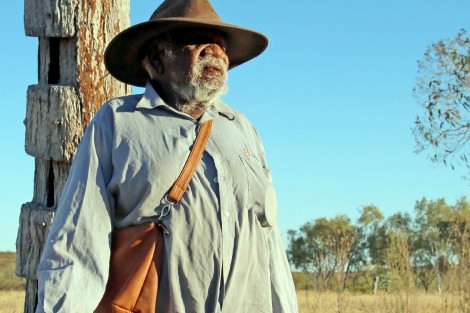
AUSTRALIA
- Moira Rayner
- 23 August 2016
9 Comments
I had been in WA for exactly a year when the local newspaper reported that a white guy had led about 200 people off Wave Rock station. Coming out of the comfortable myth that my home country of New Zealand was not racist, I was amazed to learn that Australia's Indigenous people were obliged to work without industrial protections. In 1966 it was the British Vesteys Group that had been exploiting Aboriginal people: today it is the State in the guise of 'community development', aka work for the dole.
READ MORE 
-

AUSTRALIA
- Julie Kimber
- 27 July 2016
13 Comments
The 4 Corners report into the treatment of children in a NT juvenile justice facility is a stark and grotesque demonstration of state abuse of power. As a result John Elferink, NT Corrections Minister, has been sacked, and the Prime Minister has announced a royal commission into the actions at Don Dale. This is a good start, but there is much more to be done. We need to question a culture that willingly imprisons the most vulnerable, and puts up with a system where not all are equal before the law.
READ MORE 
-
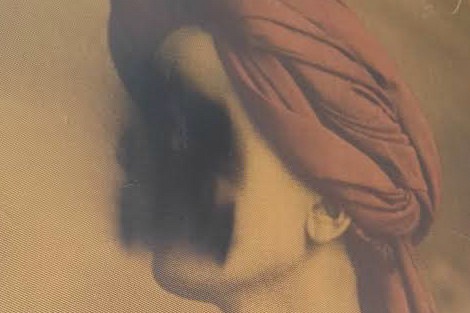
AUSTRALIA
- William Scates Frances
- 11 May 2016
13 Comments
Dismantling white myths about history is a positive step, a potential pin in an ethnic nationalism which lingers here. Yet these posters pop up often not in bastions of that denial, but rather on walls across Western Sydney, in suburbs whose demographics hardly tell tales of fortresses of white privilege. It seems that, less than a project to dismantle white myths about history, the popularity of these stories is more an attempt to bring non-white Australians into a new myth in the making.
READ MORE 
-
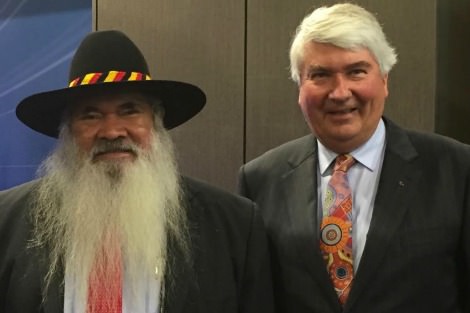
AUSTRALIA
- Frank Brennan
- 15 April 2016
21 Comments
The royal commission into Aboriginal deaths in custody, which signed off on its final reports 25 years ago this Friday, definitely improved the systems for supervision of persons in detention, reducing the risk of deaths in custody. It also led to better coronial procedures. But it failed to reverse Indigenous imprisonment rates and it did little to counter the underlying causes of Indigenous imprisonment. Back then, Patrick Dodson saw police as the main problem. Now, he thinks it's the legislators.
READ MORE 
-

AUSTRALIA
- Kate Galloway
- 24 February 2016
4 Comments
It is right and good that the outpouring of community and professional goodwill has at least delayed the return of baby Asha to what are reported to be the terrible conditions of the detention centre on Nauru. But Australia's asylum seeker laws involve unresolved systemic issues that such wins cannot by themselves resolve. Widespread community focus on individual cases such as that of baby Asha may in fact prevent action on the deeper issues from gaining traction.
READ MORE 
-
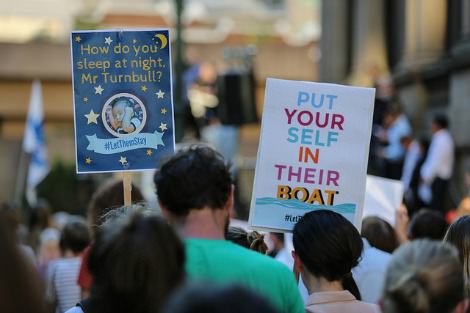
AUSTRALIA
- Somayra Ismailjee
- 12 February 2016
8 Comments
Since the first churches offered sanctuary to the refugees facing deportation to Nauru, a steady stream of voices have joined the call for compassion. As a political language, compassion is itself a reclamation of power. Extending safety, resources, or even a mere welcome to people in need proves that we have something to give. Strength is embodied by a capacity to aid and assist, rather than in cruelty. Empathy, care and compassion appeal to us on a level of emotion that runs deeper than mere rhetoric.
READ MORE 
-
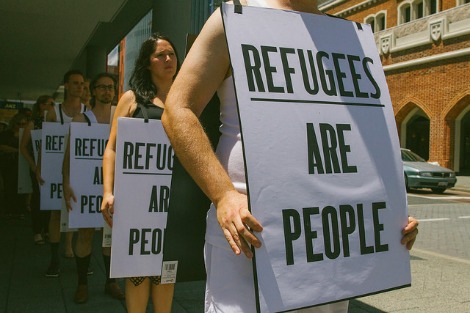
AUSTRALIA
- Kerry Murphy
- 05 February 2016
6 Comments
The practice of governments using the Parliament to change the law in order to win court cases is unfair, as only one party to a court case has the power to do this. The M68 case decided on Wednesday, which challenged the detention and transfer to Nauru of asylum seekers, was effectively won by the government because they changed the law retrospectively to make sure they would win. No retrospective fix will be possible for people who fled persecution only to face a punitive and hostile policy.
READ MORE 
-
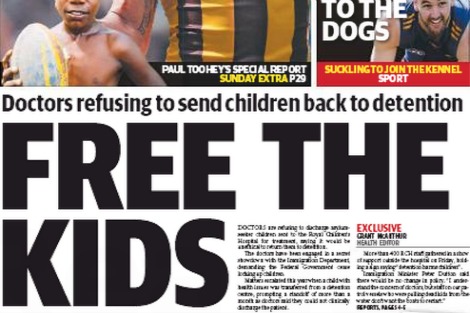
AUSTRALIA
- Justin Glyn
- 11 January 2016
4 Comments
Health care professionals at the Royal Melbourne Children's Hospital have begun to do what could not be achieved by reports from the UN Special Rapporteur on Torture and Australia's Human Rights Commission. The doctors and staff are refusing to release children they treat back to the detention which caused their problems in the first place. By this brave act has begun the slow task of pouring daylight (always the best antiseptic) into this gaping wound in Australian society.
READ MORE 
-

AUSTRALIA
- Frank Brennan
- 10 December 2015
I first met this Tony on my regular visits here to Darwin when he was working at the North Australian Aboriginal Legal Aid Service and then when he set up the mediation services under the auspices of Anglicare. In later years I knew him when he was your Anti-Discrimination Commissioner. He was a quiet, considered, gentle, strong and principled man. On Human Rights Day, it is only fitting that I honour Tony by offering some reflections on the architecture for human rights in Australia, on the contemporary human rights controversies, and on the way forward for better protection of the human rights of Aborigines and asylum seekers, two marginalised groups who had a special claim on Tony's sympathies.
READ MORE
-

AUSTRALIA
- Justin Glyn
- 13 October 2015
9 Comments
Health care professionals at the Royal Melbourne Children's Hospital have begun to do what could not be achieved by reports from the UN Special Rapporteur on Torture and Australia's Human Rights Commission. The doctors and staff are refusing to release children they treat back to the detention which caused their problems in the first place. By this brave act has begun the slow task of pouring daylight (always the best antiseptic) into this gaping wound in Australian society.
READ MORE 
-

AUSTRALIA
- Andrew Hamilton
- 17 September 2015
8 Comments
This is traditionally a soft occasion, with ceremonies to welcome those becoming Australian citizens, in the presence of the local mayor, and the presentation of a small tree as a symbol of their own grafting on to the Australian vine. But this year the day has deeper meaning, in the wake of the Australian Government's introduction of anti-terrorism legislation designed strip citizenship from certain individuals with dual nationality.
READ MORE 
-
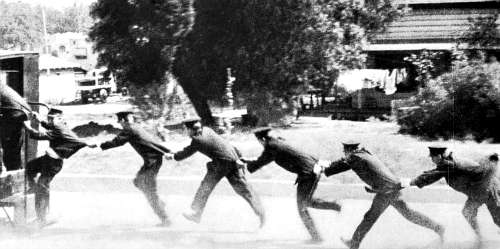
AUSTRALIA
- Kerry Murphy
- 04 September 2015
18 Comments
While we can shake our heads and laugh at last week's farce in Melbourne, we should be more concerned about the many ways this government is punishing refugees in the law, using language to demonise people and and setting up systems geared to rejecting applications. We don't need black uniforms and guns, or any form of militarisation and politicisation of Immigration.
READ MORE 